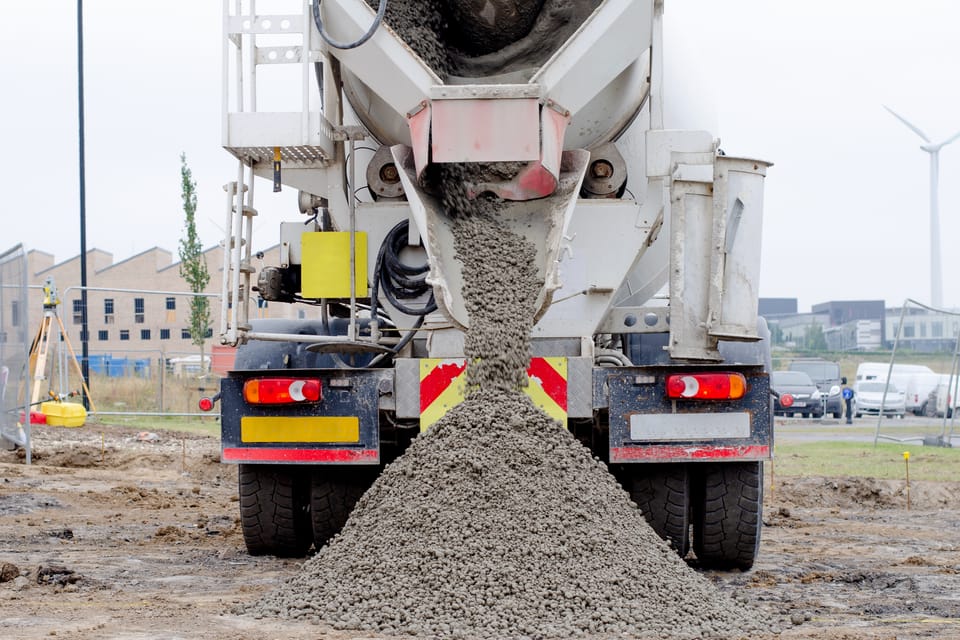Survival mode isn’t passive—it’s tactical for this Colorado concrete company

A version of this story first appeared in The Level newsletter. To get it in your inbox, sign up for free here.
Welham Concrete, based in Brighton, Colo., has been pouring foundation walls across the Front Range since 1993. At its peak, the company ran 50 employees and delivered 15 homes a week—no website, no ads, just reputation. In this town, they’re on every bid list that matters. Even so, in this latest downturn they’re now down to one or two homes a week.
Owner Blaze Welham is leading a smaller crew through a slower, tougher market—but he’s not standing still. He’s adjusting the business, staying lean and betting on discipline over desperation.
For builders navigating the same headwinds, this conversation offers the real playbook: cut mistakes, control overhead, protect your people and wait for the turn. And the right moves now can mean coming back stronger than ever. -Bianca Prieto
You were building 15 homes a week in 2018. Now you’re at one or two. What’s been the hardest part of that shift?
The stress, honestly. Laying off good people, guys who’ve been with us for years, that’s been the toughest part. There’s this constant uneasy feeling. You’re trying to keep equipment stored, find enough work for the crew and manage your own headspace. It all adds up.
But slowing down has also let us focus on teaching more because we have time to do so. I’ve gotten back into sales, reaching out to everyone I can. We’re chasing big contracts again with up to 1,000 homes. Once one of those kicks off, it opens the door to a lot of work fast.
Have you added or changed services to stay busy during the slowdown?
We’ve had to. We’re doing flatwork and slabs for homeowners who already have a place and want to fix it up. We’re even doing some landscaping and fencing too—anything to keep our guys from having to find other jobs. We are doing jobs we never would’ve taken before and we’re being more flexible than we used to be. When we’re slammed, we don’t have time for that. But now, it helps fill the gap and keeps us building.
I’m bidding every project that comes across my desk—four a month, easy. We’ve got 10 housing developments in the pipeline, but only doing one or two homes a week. Just a few years ago, we were at 10 a week.
What are developers and general contractors asking from you in this environment?
Everyone’s asking us to cut costs. We’ve had to lower bids eight to 10 percent just to help them with margins. It’s just one of those times where everybody takes a hit. The goal is to keep things moving, survive the slowdown and be ready when the market comes back.
What’s helping you stay efficient right now?
Fortunately, materials haven’t been a major issue. Rebar prices are up a little, but nothing too bad. Our biggest strength is in the crews. We’ve kept our foremen working and a few laborers. When things pick back up, we’ve still got the people and leadership to ramp up fast. These are guys I trust, and they’ve stuck with us. My nephew’s our construction supervisor, and my son’s in the office managing operations. Having a family operation that I trust allows me to go out and find more work for our guys. We’re small, but we’re solid.
If you could give other construction pros one piece of advice from this year, what would it be?
Double- and triple-check everything. When margins are tight and prices are down, you can’t afford mistakes. One error can wipe out the whole job.
And when times are good, pay everything off. A lot of guys ride the wave, rack up debt, and then they’re stuck when the slowdown hits. You need working capital. If you’re just breaking even, you can’t reinvest when it’s time to grow again. Sometimes you’ve got to scale down and pause instead of pushing so hard you break. Reset. Stay smart. Be ready when it turns.
Thanks for reading today's edition! You can reach the newsletter team at thelevel@mynewsletter.co. We enjoy hearing from you.
Interested in advertising? Email us at newslettersales@mvfglobal.com
Was this email forwarded to you? Sign up here to get this newsletter once a week.
The Level is written by Margot Lester and edited by Bianca Prieto.





